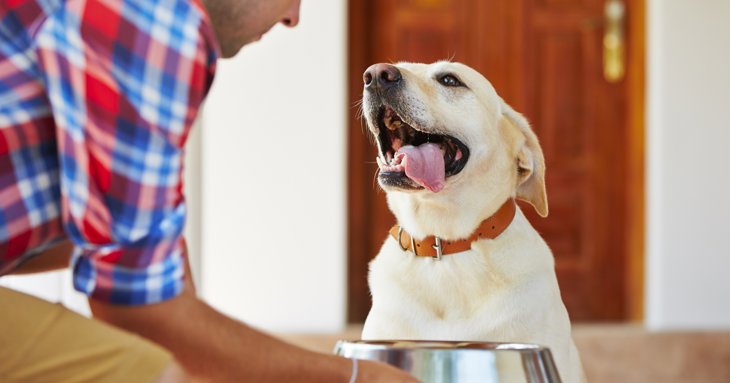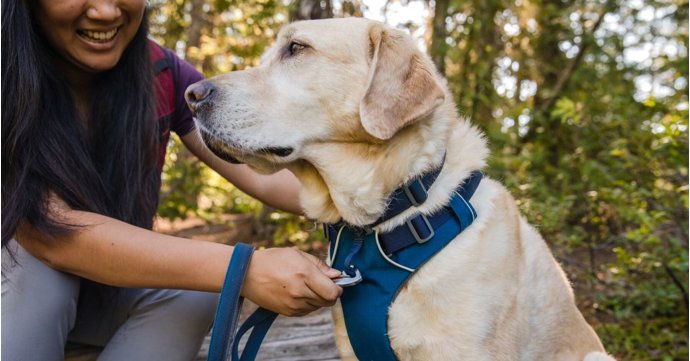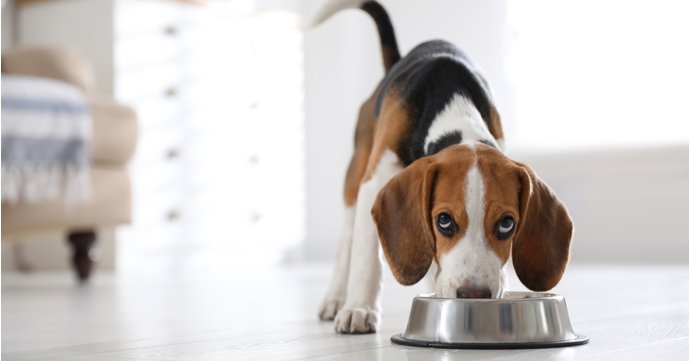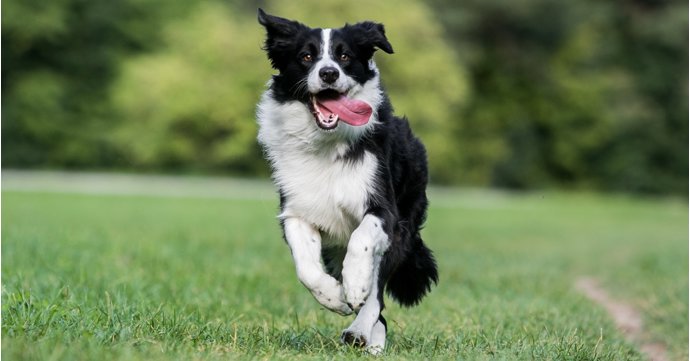Gloucestershire is a county of dog lovers, with pup-friendly pubs, attractions that welcome furry visitors and plenty of green space for walkies. Stroud was even named the most pet-friendly place to live in the south west in June 2021.
We only want the best for our beloved four-legged friends, and that’s why SoGlos caught up with local raw food provider, Cotswold RAW, to find out why uncooked and unprocessed food can get those tails wagging.
About the expert – Cotswold RAW
Delivering delicious dinners to pooches across Gloucestershire and beyond, Cotswold RAW is an independent, family-run business that specialises in producing raw food for dogs.
After noticing the benefits first-hand when switching their own dogs’ diets, the company creates its own BARF-approved recipes, using fresh local meat, seasonal produce and herbal supplements – with a home delivery and subscription service that makes it easy to keep four-legged friends well fed.
What exactly is raw dog food?
Raw dog food is all about providing complete meals for dogs using fresh, raw ingredients to replicate their natural diet. This means no artificial additives, grain or high-temperature processing.
At Cotswold RAW, all our complete raw meals follow the 80/20 rule. That’s 80 per cent raw meat and meaty bones, and 20 per cent fresh seasonal vegetables and herbs. They are nutritionally complete and developed with our veterinary consultant.
Why choose raw dog food over kibble?
Feeding raw can have a great impact on your dog’s health and vitality. If you’re thinking about making the switch, there’s a whole range of benefits you might not know about – from enhanced digestion, improved oral hygiene and positive changes in behaviour.
Dogs are carnivores after all, so feeding a balanced and complete raw diet imitates their natural diet – while processed pet food was created for the ease and convenience of humans, not always with the nutritional benefit of dogs in mind.
But we all lead busy lives and kibble has the benefit of a long shelf life, hence it’s more readily available. If you must feed processed food, find a top quality, grain-free product and use it as a ‘back-up’.
Your dog will probably be the one to let you know which it prefers. However, it’s best to think of it as you would feed yourself – maybe a ready meal when you get back late from work but a wholesome meat and two veg at the weekend!
You mentioned oral hygiene but dog owners are often told to feed their pooches dry biscuits to promote dental health. What is raw food like for dogs’ teeth?
Raw meaty bones are the principal source of calcium for a dog on a raw diet – and they’re also nature’s toothbrushes. They keep your dog’s teeth clean and gums healthy because plaque can’t build up, so decay is prevented.
Our complete meals contain naturally occurring calcium through the minced raw meaty bones, so your dog is getting all the goodness of the bones in their diet.
If you do choose to give your dog a meaty bone whole, it’s so important to supervise them. And never feed your dog cooked bones!
Why is raw dog food more expensive? It is worth it?
It’s a misunderstanding that raw feeding is expensive. You can feed a Labrador on less than the price of a cup of coffee per day! But ingredient quality is important – we’re committed to using premium British meat and organic, free-range chicken to make sure our product stays true to our Cotswold heritage.
What differences can you expect to see in your pet on a raw food diet?
Our clients have experienced big changes in their dogs, mainly from improved digestion to less waste. They will see a glossier coat and better oral health. Many would say that their dogs are calmer with the move away from a processed diet too.
How long does it take to see the benefits?
You can start to see a difference after seven days, with improvements in your dog’s stools, which will become firmer and smaller, as well as an overall improvement in their coat condition.
After the initial transition, you’ll start to see improvements in oral health and temperament too.
What should owners be careful of when changing their dogs’ diet?
Most dogs will wolf down the tasty raw dog food immediately. For the more cautious, it’s recommended to gradually switch by decreasing the amounts of kibble over a seven-day period. It will take between one-to-two weeks to see the benefits.
When transitioning to a raw diet, many raw feeding nutritionists suggest not mixing raw food with kibble in the same meal as different enzymes are required to digest protein and carbohydrate, but in our experience, most dogs can cope.
We are always so careful in handling raw meat for our own consumption and the same rules apply when handling it for our dogs. Our food is conveniently packaged so it can be defrosted before use and then kept in the fridge between servings. Remember to keep it in a sealed freezer bag or Tupperware once defrosted and use separate utensils for serving raw meat and wash them, surfaces and your hands thoroughly.




















